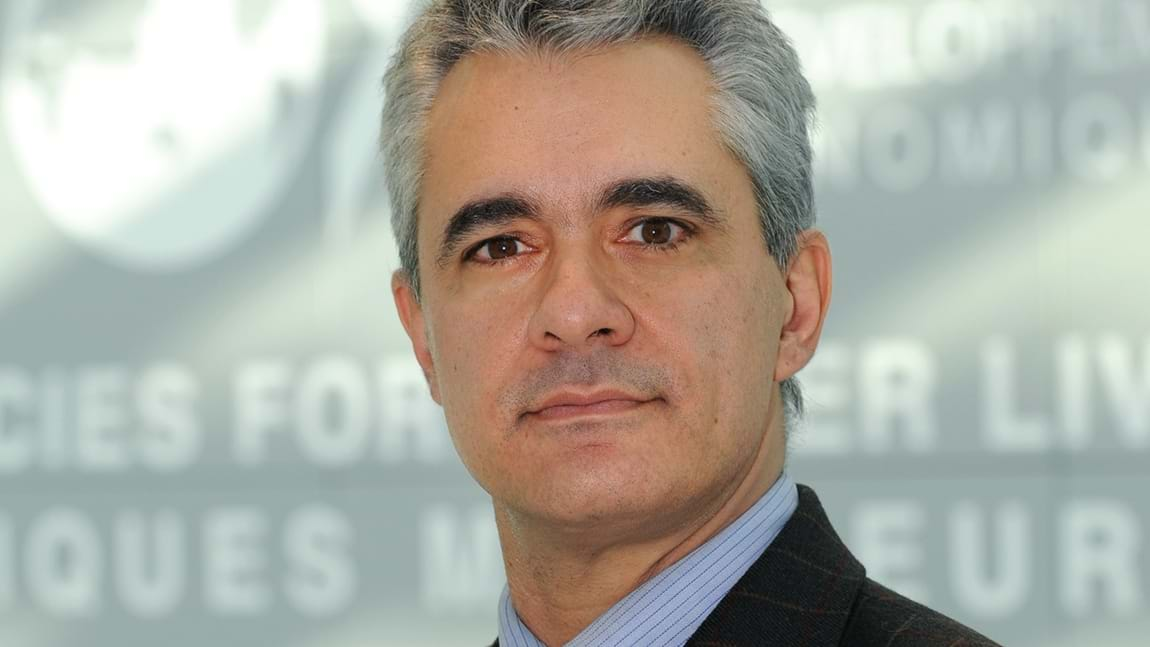OECD: The Escape Route from Poverty is Shortest in Denmark
“Denmark is the pioneer that experts look at, when it comes to breaking with social heritage,” says the OECD Director, Stefano Scarpetta.
In the domestic debate on inequality, Denmark is sometimes portrayed as a country with an enormous and totally insurmountable class divide. But from the Paris office of the OECD Director Stefano Scarpetta, the world – and Denmark in particular – looks somewhat different.
“Denmark's history is extremely positive vis-à-vis other OECD countries. Social mobility in Denmark is extremely high,” says Stefano Scarpetta, who in the course of the past five years has been scrutinising mobility in the 34 OECD countries.
In collaboration with his colleagues at the Organisation for Economic Cooperation and Development, in recent years the Director has been taking a close look at Denmark in an effort to understand how to create dynamic societies, in which it is not only your background and your parents’ financial situation that determine your trajectory in life.
Denmark is the benchmark. We look to Denmark to find out which policies contribute to a high degree of mobility. OECD Director, Stefano Scarpetta
Denmark is the master of mobility
For DI Business, OECD prepared a number of statements, which outline Denmark's position vis-à-vis inequality, in comparison to the 34 OECD countries.
The statements reveal, for example, that, together with the other Nordic countries, Denmark is one of the countries with the least difference in income between rich and poor. Denmark is also one of the countries, in which children with short education have good opportunities for receiving further education.
Finally, of all the countries in OECD, Denmark has the highest degree of income mobility across the generations. Put another way, Denmark is the country, where your familial origin has the least significance in terms of your income throughout life. In Denmark, even though you come from humble origins, you can still earn a good salary.
“When Danes say there is no mobility in Denmark, it is because they do not look at other countries. Maybe they don't know what the situation is in France, Italy or the United States,” says Stefano Scarpetta.
According to the OECD Director, it may also be relevant that, despite everything, there has been some increase in inequality in Denmark, albeit at a low level, which, in the light of Denmark's history and focus on equality may be cause for concern.
Læs også: New Figures: More Immigrants Finding Jobs in Denmark
The Danish recipe
But how does Denmark do things so well?
Stefano Scarpetta believes, for example, that the Danish education system plays a major role. Unlike Paris, where Stefano is based, Denmark provides relatively good education for everyone.
“In the outskirts of Paris, the quality of education is not the same as in the centre. And it is in the outskirts that low income families live. There is not the same diversification of quality in Denmark,” he believes.
This is particularly important when it comes to mobility. If it is only the rich who can send their children to high-quality schools and universities, then the existing divisions in society simply remain. This is negative not only from the point of view of mobility, but also when it comes to the national economy.
“It is important to make the best use of human resources. That doesn't happen if part of the population are deprived of getting a decent education and achieving their potential,” says Stefano Scarpetta.
“Denmark can also be proud of its particularly efficient labour market model, in which unemployed people receive targeted help in finding a new job. Denmark may regard this as commonplace, but other countries are not nearly as efficient,” says Stefano Scarpetta.
See also: New figures: We live longer. That’s why we have to work longer (in Danish)
Mobility is more important than ever before
The fact that discussions about inequality have started to take off in Denmark and other countries comes as no surprise to Stefano Scarpetta. He believes it is because we are in a new era, in which, unlike in the past, not everyone is seeing their incomes rise.
“If you look back at the 1950s, 1960s or 1970s, our economies tended to grow fairly quickly, so that everyone - whether at the top or bottom of society - got a boost in their income. In that context, it was less important to people if the rich became much richer,” he says.
“But today, where large groups of society in some countries have not achieved an income increase, there is more focus on the fact that the very rich have become much richer. And that development will continue in the years to come,” says Stefano Scarpetta.
"As consumers, we will all benefit from the digital transformation. But I'm not so sure that will be the case for our working lives. And that can also result in income differences," he says.
Læs også: Faizal, Xi and Megan generate billions for Denmark
This time it’s different
According to Stefano Scarpetta, what makes today so different is the fact that new technology is taking over not only physically tough jobs, but also a number of intellectual jobs. Stefano Scarpetta wonders whether there will be new jobs for those people who are laid off as a result of technological development.
“The development is much faster this time round. We are forced to adapt very quickly," he says. “In this context, companies have a crucial role to play.”
“Needless to say, companies are interested in training their staff, so they can make use of the new technologies: for the sake of both the employees and the companies,” says Stefano Scarpetta, who finds that an increasing number of multinational companies are worried about growing inequality.
“Social cohesion is also high up on the corporate agenda. Companies are concerned about inequality and the frustration it brings in many countries. They want to make a positive difference. And they can: for example, by investing in their employees,” says Stefano Scarpetta.
Who’s Who
STEFANO SCARPETTE
Director of OECD’s Department for Employment, Labour and Social Affairs since 2013.
Formerly led OECD’s country analyses of Denmark and Sweden.
He has also worked for the World Bank, where he was the lead economist in the Bank’s analyses of the labour market.
He holds a PhD in Economics from the Ecole des Hautes Etudes en Science Sociales (EHESS) in Paris.


